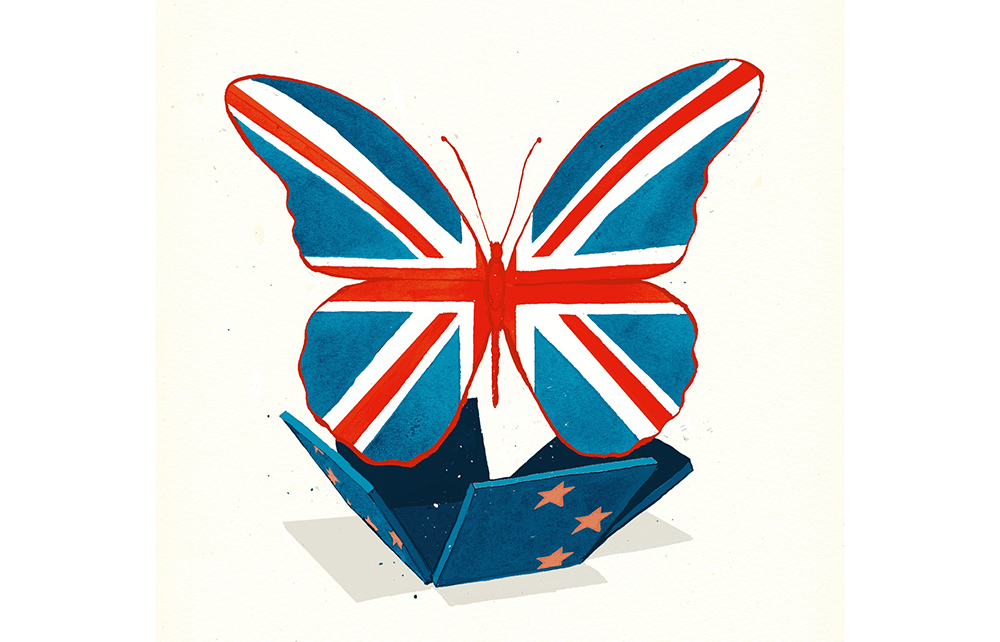There was hardly an election poster to be seen on the roadside during a two-hour drive from London to the country. The British do not appreciate this miracle. In Poland five days before an election, every other fence would be disfigured with photoshopped faces. Our lovely lunch hosts seemed resigned to the coming Red Terror: a purge of the remaining hereditary peers in the House of Lords, a new relationship with the European Union, inheritance taxes. I tried to cheer them up with a piece of Central European wisdom: there is always time for a magnum of champagne between the revolution and the firing squad.
I gather that the Minister for Finding the Benefits of Brexit rather failed in his mission, but if I were an EU Commissioner for Finding the Benefits of Brexit I would credit the outgoing regime on at least three counts. First, thanks to Brexit, the EU at last has the wonderfully named European Peace Facility – an EU defence budget, of course – which the UK consistently vetoed. Most of its €7 billion has been allocated to arms for Ukraine although disbursement is still being vetoed by Hungary. Second, Brexit has finally settled the argument as to whether member states lose sovereignty. I was born in communist Poland: if we had tried to leave the Warsaw Pact, as Imre Nagy did in 1956, we would have been invaded by Soviet tanks. That’s what lack of sovereignty looks like. Britain, on the other hand, left the EU by its own decision and nobody tried to stop you. You were sovereign all along. Third, there used to be more than a million Poles in the UK, but the latest estimate is around 700,000. Higher wages in Norway, Germany and even Poland (our average pay is now €2,000 per month) are probably the main factor, but Brexit surely contributed. In practice, Brexit abolished privileges for EU citizens and brought their legal status in the UK down to the level of other foreigners. As a result, you get fewer migrants from Europe and more from the rest of the world. Good! We want our Poles back.
On to beautiful Ditchley Park, to deliver the 60th annual lecture. No Pole can refuse such an invitation, especially when offered bedroom No. 4, where Winston Churchill spent many nights during the war, beyond the range of Luftwaffe bombers. My lecture title – ‘Reflections on the Present Danger’ – was a challenge, given that two former foreign editors of The Spectator, Timothy Garton-Ash and Anne Applebaum, were in the audience. I was relieved to hear that government outlets in Moscow and Minsk quickly denounced it, which must mean it was a success. Meanwhile, my Polish Twitter followers were delighted by photographs of my country’s flag flying over Ditchley, apparently for the first time ever.
Much of my talk concerned Ukraine. My friend David Lammy assures me that Labour will not alter Britain’s help and support. Still, I detected a strain of more general doubt, as well as scepticism about whether we can really sustain Ukraine until Vladimir Putin gives up. The Russians have successfully planted the idea that because they defeated Napoleon and Hitler, they always win in the end. But they didn’t win the Crimean War, they didn’t win the Russo-Japanese war, they didn’t win the first world war, they didn’t win the 1920 Polish-Bolshevik war, they didn’t win the Winter War with Finland, they didn’t win in Afghanistan and they didn’t win the Cold War. They often lose, in fact – and when they do, they carry out reforms. Nicholas II was forced to create a parliament and a constitution after losing to Japan in 1905. Kerensky tried to make Russia a normal country in 1917. Mikhail Gorbachev and Boris Yeltsin reformed the Soviet Union after the country collapsed beneath the weight of its criminal idiocy. It would be very good for Russia to lose in Ukraine. It would have to re-invent itself as a post-imperial power.
One mystery persists. I have accepted the idea that vast manicured lawns are passé, and that it is more ecological and beautiful to let most of your grass grow long. It works wonderfully at Ditchley, where paths have been cut through the elegant long grass strewn with wildflowers. But when I attempt it in Poland, I get a mess of weeds and nettles. Is it a trick of mowing at the right time in the spring? A special weedkiller? Or maybe there is something about English rain, its quality and quantity? Advice would be gratefully received.







Comments